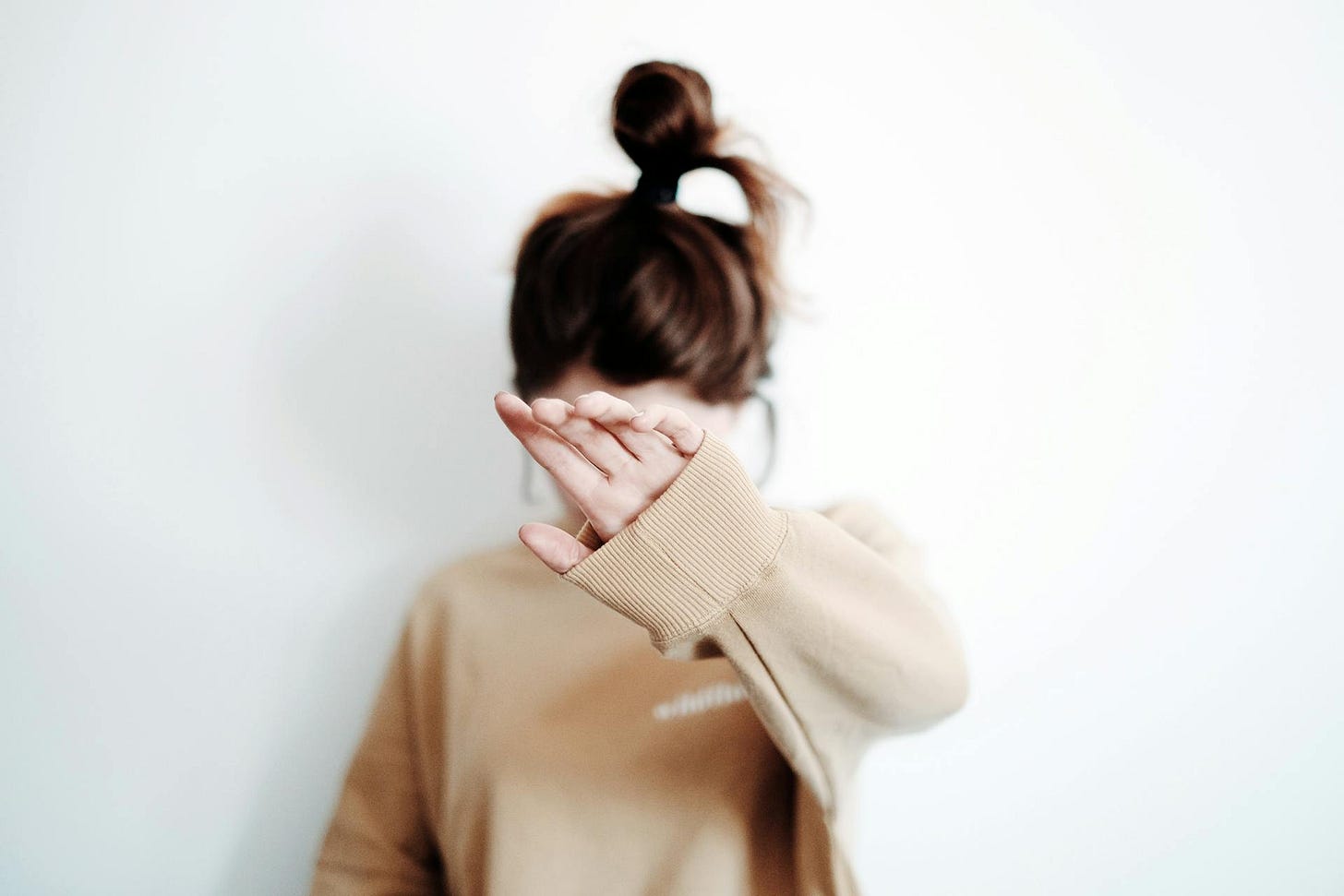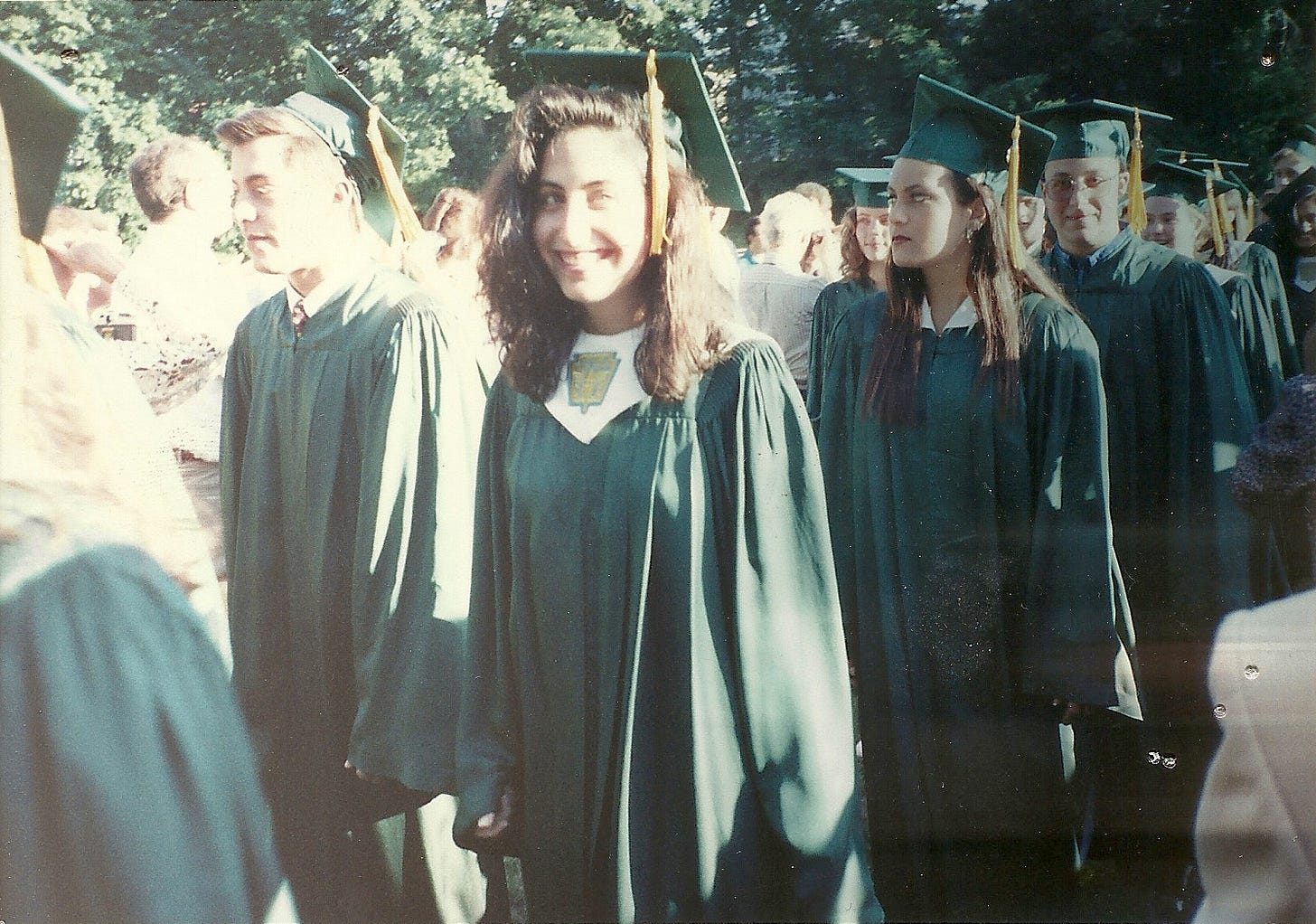I’m interspersing installments of my Social Media History Series with my regular content. This week’s newsletter is on one of my regular content topics and my Social Media Series will resume soon.

Two years ago, I was decluttering boxes of childhood memorabilia in preparation to move, when I came upon a letter I’d written to a friend I’d met at Club Med on spring break my senior year in high school. For some reason, my lengthy, diary-like letter had been returned-to-sender, and I’d saved it.
In this letter, I’d written about my life at the time, during the last months of high school, in great detail. I wrote about how I’d gotten a new job as a hostess at a popular, busy local restaurant, and was working multiple weeknights as well as on weekends. I wrote to her about the extremely attractive restaurant manager, whom me and my friends I hostessed with all had a crush on. And I excitedly told her about how he flirted with us.
Seventeen-year-old me was flattered that the good-looking manager flirted with me and my friends; we wanted his flirtatious attention. But middle-age me has questions: Why was this man in his 20s, in a supervisory role, flirting with high school girls?!?
I realized that “the male gaze” is introduced to us as girls and young women as something to desire, court, and feel flattered by, and that as we get older, we’re admonished for aging and warned that men will no longer find us attractive, or even worse (gasp!), stop noticing us altogether. But in reality, in my experience of being on the receiving end of the male gaze, it’s often, actually, quite predatory, unnerving, and sometimes even downright terrifying.
Reading my words from 30 years earlier, it dawned on me that the height of being on the receiving end of the male gaze, when attention (often unwanted) from men is at its peak, is when girls are about 17 years old. At 17, I was a magnet for male attention. There were the flirtatious restaurant managers. The catcalls as a car drove by when I was walking down the street, even in my small hometown. The inappropriate comments and lingering looks from older male bosses when I worked at other part-time jobs. The list goes on.
The summer after I graduated from high school, I dated a smoking hot 23-year-old guy who scooped ice cream with two of my close friends I frequently visited at the shop. He used to tell me that I turned him on more than the girls his own age. Then, this was the ultimate compliment. Now, I want to hug 17-year-old me and protect her from this man who was dating someone way too young for him and should’ve stuck to “girls his own age.”
While, in retrospect, the male-gaze-reception peaked at around 17, it continued at full blast through my 20s and 30s. Another restaurant boss, who was 15-20 years older than me, this time in New York City at my first waitressing job after graduating from college, used to corner me in the office and alternately ask me to smoke pot with him right then and there, or go on a picnic with him in Central Park. At a temp job, a guy at least 10 years older than me asked me on a date and took me to see a popular show of that era, De La Guarda. My roommates and I used to go dancing at a club that one of my friend’s boyfriends referred to as “The Jail Yard,” because men would stand around the edges of the dance floor staring hungrily at the (young) women dancing.
When I was 30 years old and living in Brooklyn, I experienced one of the scariest forms of male attention, one that made me feel unsafe in my own neighborhood for years to come.
Keep reading with a 7-day free trial
Subscribe to Rebuilding With Jennifer Garam to keep reading this post and get 7 days of free access to the full post archives.




